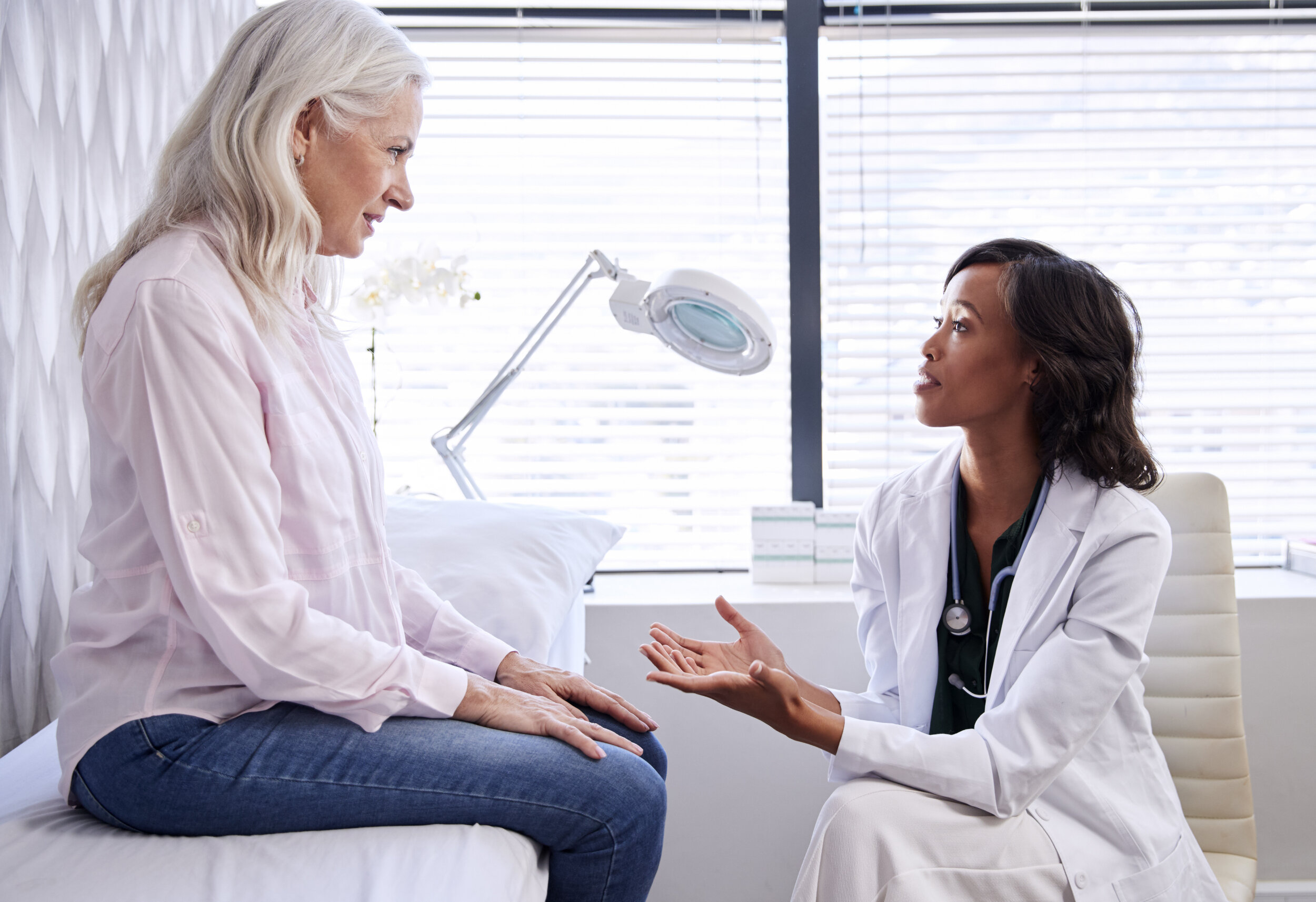
General Gynecology
While many issues can be covered during your annual visit, we are here to help between checkups, too.
From the routine to the complex, the Oxford Clinic for Women team can guide you through the gynecological services you need at all ages and stages of life. Whether its contraceptive education and counseling or hormone treatment, we’ll be here for you.
While many issues can be covered during your annual visit, we are here to help between checkups, too. Abnormal bleeding, pelvic pain, itching, burning or redness around the vagina and vaginal discharge with an unpleasant or unusual odor or color are all symptoms that should be checked by a health care provider. The symptoms could be signs of a mild infection that could become more difficult to treat if ignored. Or they could reveal more serious problems. In either case, the Oxford Clinic for Women team can help diagnose and form a treatment plan.
There are several common gynecologic conditions:
Endometriosis occurs when the tissue lining the uterus grows in other places. According to the Office of Women’s Health it affects more than 11 percent of U.S. women between 15 and 44. In addition to heavy periods, its symptoms include long-term pelvic pain and pain during sex, bowel movements and urination. The condition can make it difficult to get pregnant. Your doctor can help you work through treatment options which may include medication or minimally invasive procedures.
Uterine fibroids are primarily noncancerous tumors that grow in the wall of the uterus. Although fibroid tumors do not always cause symptoms, they can cause pain and heavy menstrual bleeding. Gynecologists have a range of options to address fibroids, including medication, fertility-preserving procedures, hysterectomy and minimally invasive procedures that leave the uterus in place.
Polycystic ovary syndrome (PCOS) is a common and treatable cause of infertility. According to the Office of Women’s Health, it affects 1 in 10 women of childbearing age. PCOS is caused by an imbalance of reproductive hormones that interferes with the development and release of eggs from the ovaries each month. It can cause irregular menstrual cycles.
Pelvic floor disorders occur when the muscles supporting the uterus, bladder and rectum become weak or loose. Childbirth, obesity, aging, family history and post-menopausal hormone changes can all contribute to these disorders. It can cause urinary or fecal incontinence. With pelvic floor prolapse, the bladder, rectum or uterus can drop into or out of the bladder. Your medical team has a range of options, including nonsurgical treatments, to address pelvic floor disorders.
Some procedures can be performed in the office. Oxford Clinic for Women offers Mona Lisa Touch procedures that can be used to address some issues.
If surgery is needed, Drs. Henderson, Smith and Cole have years of gynecological surgical experience and have privileges at Baptist Memorial Hospital-North Mississippi in Oxford. Dr. Cole has a professional interest in minimally invasive techniques, including laparoscopic surgery and robot-assisted surgery.
FAQs
+ When should I seek medical attention for gynecologic issues?
Johns Hopkins Medicine recommends that women see their health care provider if they have any of the following symptoms:
- Bleeding between periods
- Frequent and urgent need to urinate, or a burning sensation during urination
- Abnormal vaginal bleeding
- Bleeding after menopause
- Pain or pressure in your pelvis that differs from menstrual cramps
- Itching, burning, swelling, redness, or soreness in the vaginal area
- Sores or lumps in the genital area
- Vaginal discharge with an unpleasant or unusual odor, or of an unusual color
- Increased vaginal discharge
+ At what age can I stop taking contraception?
Both the American College of Obstetricians and Gynecologists and the North American Menopause Society recommend that women continue contraceptive use until menopause or age 50–55 years of age. The median age of menopause is approximately 51 years in North America but can vary from ages 40 to 60 years, according to the Centers for Disease Control. Since there are risks associated with hormonal contraception and with pregnancy in women after 40, women should talk with their health care provider to choose the best strategy for them.
+ Do I really need to share embarrassing details about my periods, sexual history or bathroom habits?
Your medical team at Oxford Clinic for Women are professionals bound by ethics and privacy laws. We recognize that patients are trusting us with sensitive information and take that seriously. We want to help you be as healthy as possible, and it is important that we have the full picture of factors that impact you.





